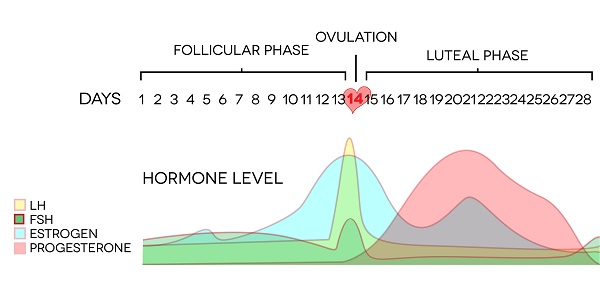A woman’s menstrual cycle can tell a lot about their health and well-being. Do you know the usual length of a period, when your last one started or how it last? If not, you should start to pay attention to these things. The information in this article will highlight what’s the usual length of a period, among other things.
Your menstrual cycle will be the series of changes that your body goes through monthly to prepare for the possibility of conception or pregnancy. An egg will be released each month from one of the ovaries through a process known as ovulation. If ovulation occurs and the egg is not fertilized, your uterine lining will shed through the vagina and this is your menstrual period.
What’s The Usual Length of a Period?
The menstrual cycle is calculated from the first day of a period to the first of another, but this is not the same for every female. You can have a menstrual flow every twenty-one to thirty-five days and it can last for two to seven days. It is common for some women to have long cycles during the first couple of years after they start to menstruate. However, the menstrual cycle often shorten and occur more regular when you become older.
Your menstrual cycle may be regular, coming for the same length each month, or it could be somewhat irregular. You could also have heavy or light, pain-free or painful, short or long period and it is still considered normal. It is important to note that some types of contraception can change your menstrual cycle.
To know what is normal for you as well as know if your period is coming at the usual length, you can keep a record on a calendar. Start by tracking the date when your period begins each month for a few months to identify any regularity.
If you are having concerns about your monthly periods, you can also take note of these things:
- The heaviness of your menstrual flow. Note if it seems heavier or lighter than normal and how often you have to use new sanitary protection.
- The end date. Record how long your typical period last.
- Describe the pain that is associated with your monthly period to know if it’s worse than usual?
- Abnormal bleeding between periods
- Any other changes such as mood swings. Note if anything new is happening around the time when your period change.
If you want to understand what is normal for you, to identify significant changes like missed period and your ovulation time, you can start to track your menstrual cycles. Although menstrual cycle irregularities are usually not serious, they can sometimes indicate certain health problems. Consult your health care provider if you have concerns or questions about your menstrual cycle.



